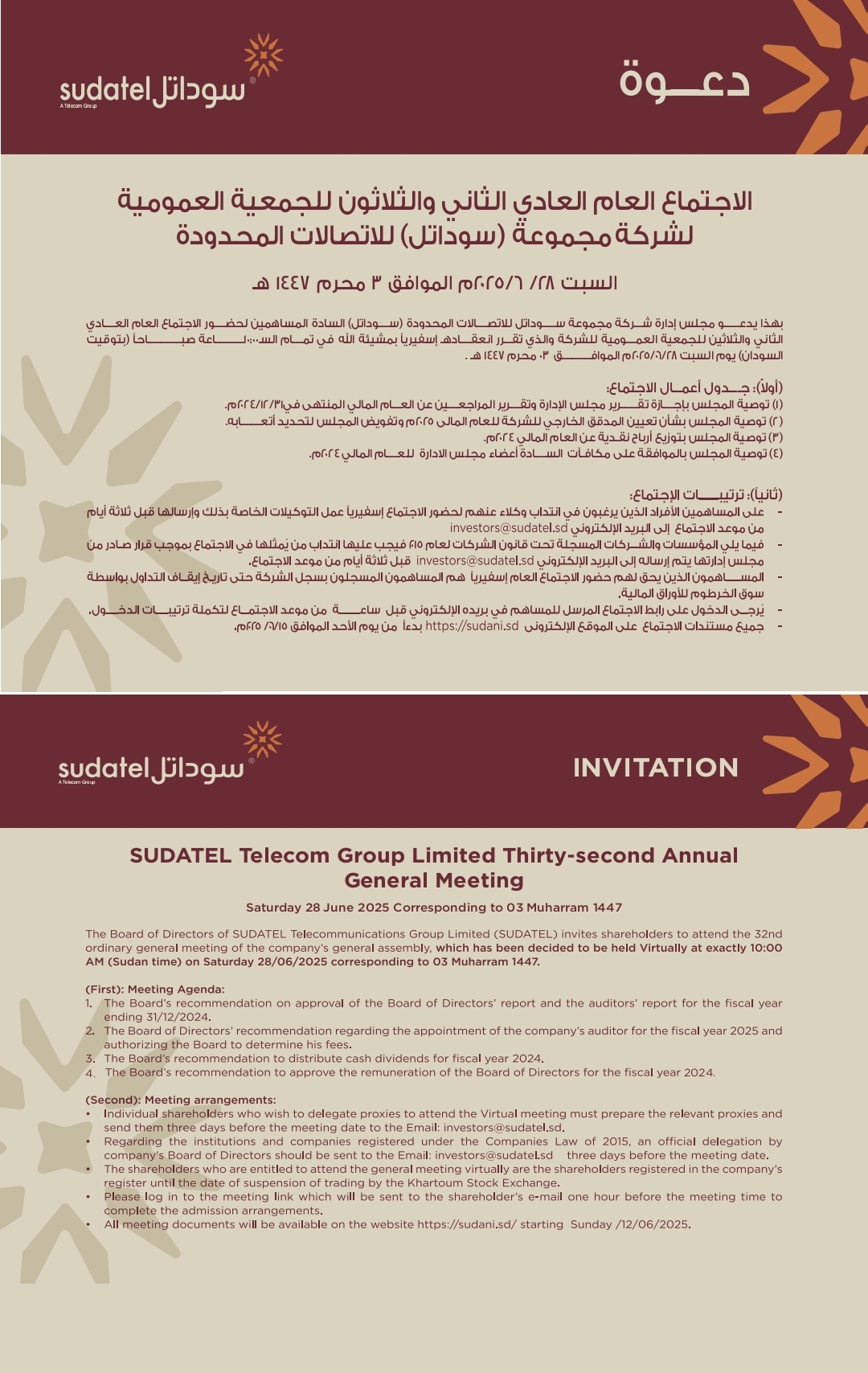د. محمد يوسف قباني يكتب: جوهر الوعي المجتمعي السوداني: إرادة الحياة في قلب الموت وذاكرة الألم.. The Essence of Sudanese Social Consciousness: The Will to Live in the Midst of Death and the Memory of Pain. Dr. Mohamed Elgabbani..

د. محمد يوسف قباني يكتب: جوهر الوعي المجتمعي السوداني: إرادة الحياة في قلب الموت وذاكرة الألم..
The Essence of Sudanese Social Consciousness: The Will to Live in the Midst of Death and the Memory of Pain.
Dr. Mohamed Elgabbani..
في زمنٍ تهتزّ فيه الجغرافيا السودانية على وقع الحرب، وتتشظى فيها المدن والقرى إلى ركام من الألم، ينهض الوعي السوداني كشمسٍ عنيدة ترفض الغروب. ليس من قبيل المبالغة أن نقول إنّ الشعب السوداني رغم جراحه النازفة وتاريخه المثقل بالخذلان يملك جوهراً نادراً من الصمود، يتجسد في إرادة الحياة في قلب الموت، ورفض الاستسلام مهما بلغ حجم الانكسار والدمار. هذه الإرادة ليست مجرّد شعار، بل هي تجربة معاشة، ومسار نضال طويل، وذاكرة مثقلة بكل ما يجعل الشعوب تنهار، ومع
ذلك… لم ينهر السودانيون، بل أعادوا تعريف مفهوم الانكسار ذاته، فصار عندهم لحظة وعي لا لحظة هزيمة، ومحرّك مقاومة لا علامة خضوع.
في خضمّ الدمار الذي خلفته الحروب والنزاعات، وفي ظل الانهيار شبه الكامل لمؤسسات الدولة، وقف السودانيون (بين الموت والحياة… يقظة الوعي) لا كضحايا فقط، بل كشهودٍ على روح لا تُقهر. تجلّى وعيهم في أبسط صور الحياة: تنظيم المساعدات الشعبية، ابتكار طرق التعليم البديلة، إحياء التضامن المجتمعي، تقديم الدعم النفسي للنازحين، وانبعاث المبادرات الذاتية التي تملأ فراغ الدولة المنهارة. هذا الوعي الجماعي لا يولد من فراغ، بل من تجربة قاسية في العيش مع الفوضى،
والتعايش مع الخذلان، والتصالح مع الألم، دون السماح له بابتلاع الحلم. الوعي السوداني ليس ترفاً فكرياً كما ذكرنا سابقاً، بل ضرورة وجودية. فحين تغيب أبسط مقومات الحياة، يصبح الإصرار على البقاء موقفاً فلسفياً وجدلياً. يصبح الوعي – بمعناه العميق – هو الجدار الأخير في وجه الانهيار الكلي. إنه ليس فقط الوعي السياسي، بل الوعي الإنساني، الثقافي، التاريخي، الوعي بأننا شعب لا يجوز أن يُمحى، مهما تعاقبت عليه العواصف.
في السودان، الانكسار ليس حدثاً طارئاً، بل حالة تتكرر. لكنه أيضاً امتحان دائم للإرادة. فكلما خُيِّل للبعض أن الشعب قد وصل إلى القاع، فوجئوا بصعود جديد. من انقلاب إلى آخر، من مجاعة إلى أخرى، من تهجير قسري إلى إصرار على العودة، ظلّ السودانيون يرممون وجودهم المهدد بما تيسر من أمل ووعي. الانكسار في التجربة السودانية لم يكن يوماً إذعاناً. بل كان فرصة لإعادة التموضع، للتأمل، ولتفجير طاقات جديدة. وهذا ما يجعل هذا الشعب مختلفاً: أن يحوّل الخسارة إلى دافع، والدموع إلى وقود، والرماد إلى بذور.
في مشاهد النزوح الجماعي، حيث يفترش الناس الأرض ويلتحفون السماء، نجد أطفالاً يدرسون على ضوء الهواتف، ونساءً ينسجن من الألم خيوط الأمل، وشباباً يؤسسون المبادرات ويخاطرون بأنفسهم لإيصال الدواء والغذاء. كل فعل من هذه الأفعال، مهما بدا بسيطاً، هو في جوهره مقاومة. وهو إعلان رمزي بأنّ الموت ليس أقوى من إرادة الحياة.
الحياة هنا ليست تلك التي تُقاس بطول العمر أو عدد الممتلكات، بل حياة الوعي، والكرامة الإنسانية، والمواطنة، والحلم بمستقبل يليق بكل إنسان سوداني – مطلق إنسان، وبالنازحين، والمقهورين، والمخذولين.
إنّ جوهر الوعي السوداني هو تلك الشرارة التي تتقد كلما خيّم الظلام، وتلك اليد التي تمتد لتصنع خبزاً من العدم، وابتسامة من الألم، وبسمة طفل من فوهة جرح. هذا الوعي هو إرادة الحياة التي لا تُكسر، حتى لو انهار كل شيء من حولها. هو الصرخة التي تقول للعالم: “نحن هنا، ولن نغيب، ولن نستسلم، ولن نُهزم”.
ورغم الدماء، ورغم الأشلاء، ورغم الخيبات التي لا تُعد، فإن السودانيين – بهذا الوعي الصلب – لا يزالون قادرين على الحلم، لا كترف، بل كحقّ لا يُنتزع. لأن من يرفض الاستسلام، مهما بلغ حجم الانكسار، هو وحده القادر على بعث الحياة في أرضٍ ظنّها البعض قد ماتت. فالسودان، في جوهره، ليس بلد حربٍ فقط، بل بلد وعيٍ يُولد من رماد الموت… ويصنع الحياة.
At a time when Sudanese geography is shaken by war, and cities and villages are shattered into rubble of pain, Sudanese consciousness rises like a stubborn sun that refuses to set. It is no exaggeration to say that the Sudanese people, despite their bleeding wounds and a history burdened with betrayal, possess a rare essence of resilience, embodied in the will to live in the midst of death and a refusal to surrender, no matter the magnitude of defeat and
destruction. This will is not merely a slogan; it is a lived experience, a long path of struggle, and a memory burdened with everything that makes people collapse. And yet… the Sudanese did not collapse. Rather, they redefined the concept of collapse itself, making it a moment of awareness, not a moment of defeat, a motor of resistance, not a sign of submission. Amid the devastation left behind by wars and conflicts, and amid the near-total collapse of state institutions, the Sudanese stood (between death and life… the awakening of consciousness) not only as victims, but as
witnesses to an indomitable spirit. Their awareness manifested itself in the simplest aspects of life: organizing popular aid, devising alternative educational methods, reviving community solidarity, providing psychological support to the displaced, and launching self-help initiatives to fill the void of a collapsing state. This collective awareness is not born out of a vacuum, but rather from the harsh experience of living
with chaos, coexisting with betrayal, and coming to terms with pain, without allowing it to swallow the dream. Sudanese awareness is not an intellectual luxury, as we mentioned, but an existential necessity. When the most basic necessities of life are absent, the insistence on survival becomes a philosophical and dialectical position. Awareness in its deepest sense becomes the final bulwark against total collapse. It is not only political awareness, but also
human, cultural, and historical awareness—the awareness that we are a people who must not be erased, no matter how many storms befall us.
In Sudan, defeat is not a temporary event, but a recurring phenomenon. But it is also a constant test of will. Every time some imagine that the people have hit rock
bottom, they are surprised by a new rise. From one coup to another, from one famine to another, from forced displacement to a determination to return, the Sudanese have continued to repair their threatened existence with whatever hope and awareness they can muster. Defeat in the Sudanese experience has never been a sign of submission. Rather, it has been an
opportunity to reposition, reflect, and unleash new energies. This is what makes this people different: to transform loss into motivation, tears into fuel, and ashes into seeds.
In the scenes of mass displacement, where people sleep on the ground and seek shelter under the sky, we find children studying by the light of their phones, women weaving threads of hope from pain, and young
people establishing initiatives and risking their lives to deliver medicine and food. Every one of these acts, no matter how simple it may seem, but, at its core, an act of resistance. It is a symbolic declaration that death is not stronger than the will to live. Life here is not measured by length of life or the number of possessions, but rather by awareness, human dignity, citizenship, and the dream of a future worthy of every Sudanese person every human being, as well as the displaced, the oppressed, and the forsaken.
The essence of Sudanese awareness is the spark that ignites whenever darkness falls, the hand that reaches out to make bread from nothing, a smile from pain, and a child’s smile from the mouth of a wound. This awareness is the will to live that cannot be broken, even if everything around it collapses. It is the cry that tells the world: “We are here, and we will not disappear, we will not surrender, and we will not be defeated.”
Despite the blood, the remains, and the countless disappointments, the Sudanese with this solid awareness are still able to dream, not as a luxury, but as an inalienable right. Because only those who refuse to
surrender, no matter how great the defeat, are capable of breathing life into a land some thought had died. Sudan, in essence, is not just a country of war, but a country of awareness that is born from the ashes of death… and creates life.









